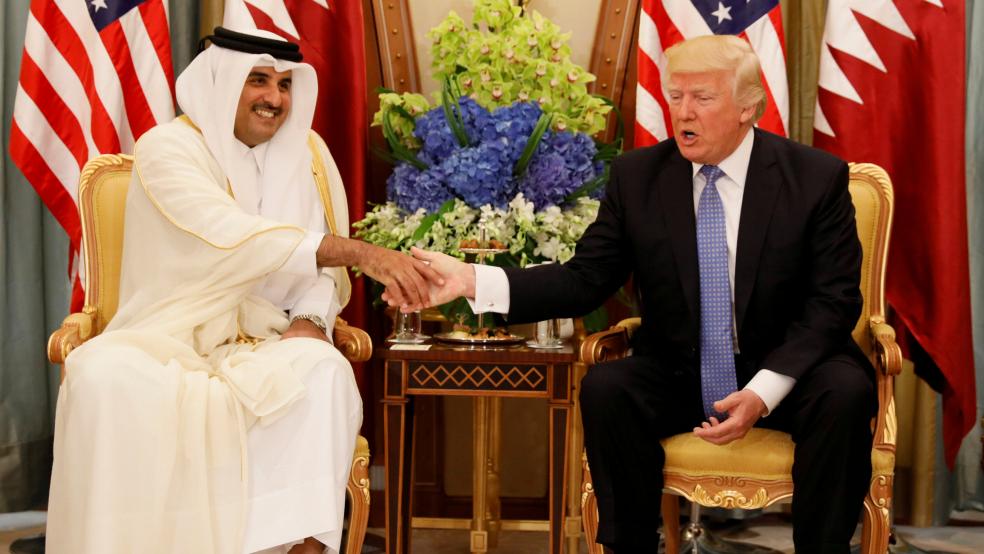There was more than a little confusion in foreign policy circles last week when President Trump joined several Middle Eastern countries in castigating the tiny Persian Gulf nation of Qatar for failing to be tough enough on terror finance. It wasn’t that cracking down on terror finance was a surprising issue for Trump to champion so much as it was the choice of target.
Like many countries in that part of the world, including several U.S. allies, Qatar has a complicated and problematic history when it comes to terror finance. Unlike many of them, though, it also plays host to substantial number of U.S. military personnel. The Al Udeid air base in Qatar is home to 11,000 U.S. personnel and is a key tactical hub for U.S. military airpower in the region.
Related: Time for Trump to Face It: From Now on, Every Week Is ‘Russia Week’
So when Trump fired off these two tweets last week --
So good to see the Saudi Arabia visit with the King and 50 countries already paying off. They said they would take a hard line on funding...
— Donald J. Trump (@realDonaldTrump) June 6, 2017
...extremism, and all reference was pointing to Qatar. Perhaps this will be the beginning of the end to the horror of terrorism!
— Donald J. Trump (@realDonaldTrump) June 6, 2017
-- foreign policy experts began to wonder if he was signaling a coming realignment of U.S. policy in the Middle East.
However, if recent events are any guide, U.S. policy toward Qatar appears largely unchanged, even after the president so plainly connected the government there to terrorism.
On Wednesday, Qatari representatives in Washington sat down with Secretary of Defense James Mattis and agreed on the sale of some three dozen F-15 fighter jets to the kingdom. In an interview with Reuters, a Qatari official called the sale “proof that US institutions are with us.”
The official added, "Our militaries are like brothers. America's support for Qatar is deep-rooted and not easily influenced by political changes.”
Related: China Steps in to Fill the US Leadership Vacuum
As if to confirm that assessment, on Thursday U.S. Navy ships began a training exercise with the Qatari Navy, sending two warships to begin maneuvers there.
Two signs of U.S. solidarity with Qatar coming so close on the heels of President Trump’s tweets attacking the country for being a sponsor of terrorism are creating substantial confusion, both in the U.S. and among allies abroad.
Powerful Gulf nations near Qatar have banded together to impose heavy sanctions on their tiny neighbor, closing borders and implementing what amounts to a blockade meant to keep goods from entering the country and people from traveling to and from it. Among the Gulf region countries that have joined together in that effort are U.S. ally Saudi Arabia, as well as the United Arab Emirates and Bahrain.
The show of U.S. support for Qatar, which Qatari officials told Reuters they “never doubted,” has created a dilemma for both U.S. policymakers and America’s Gulf allies. Having taken a strong stance against Qatar -- and having received what appeared to be the preliminary support of the U.S. president -- Saudi Arabia and its partners will be reluctant to back down. Indeed, they would be hard-pressed to find a way to do so that would allow them to save face.
Related: The Navy’s New Carrier Is Billions Over Budget – and the Next One Will Be Too
For its part, the U.S. appears to be scrambling to define its position in between squabbling allies.
The State Department has been notably subdued on the issue, and at the Pentagon, Mattis earlier this week conceded that with the blockade in place, the U.S. is facing a “very complex situation.”





